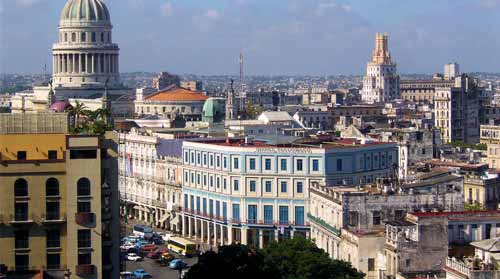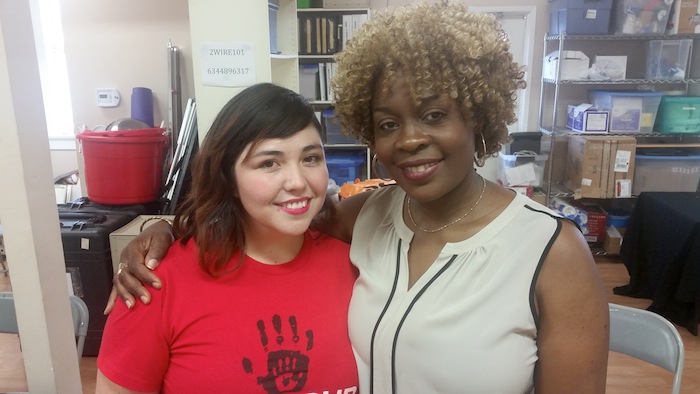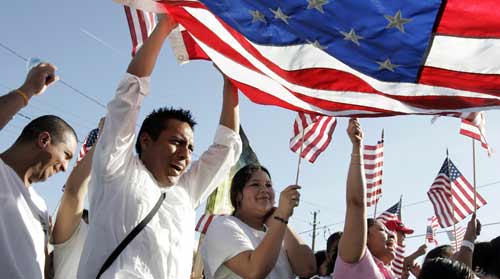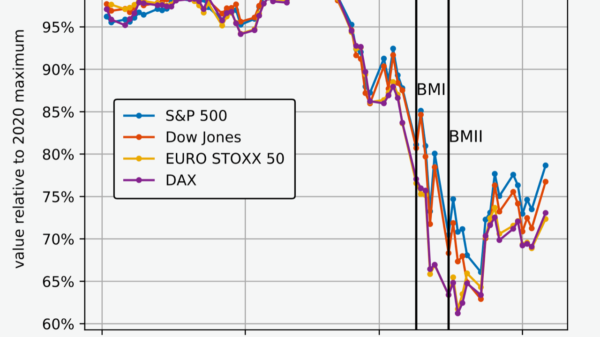HAVANA—When the U.S. embassy reopened in Havana on Monday after more than 54 years, it signaled what Cubans have now accepted: creeping capitalism is the future.
A stroll through Old Havana is enough to convince anyone that the entrepreneurial spirit that is fast-transforming this city into a nation of shopkeepers is in full swing. This isn’t to say that corporate America is about to descend on this island nation of 12 million people. Raúl Castro’s reforms place sharp restrictions on capitalism: one can work for one’s self, but only the state can hire more than two employees.
For now, this is enough. Capitalism has arrived: families are running small restaurants called paladares; people are renting out rooms in their homes to foreign tourists; artists are inviting buyers into their studios and homes; and entrepreneurs are providing goods and services as best they can to all manner of buyers.
Capitalism Arrives
Capitalism is creeping in—and there is nothing that the communist regime can do to prevent it.
Not that the government wants to stop the changes.
“Our task is to provide assistance to those who are working to make things better,” Eusebio Leal, who runs Office of the City Historian, said as he discussed the restoration of Old Havana—declared a World Heritage Site by UNESCO in 1982 and being restored with funds provided by the international community, primarily the European Union. Along with Patricia Rodríguez, who is in charge of the Master Plan for the Integral Restoration of Old Havana, officials have encouraged entrepreneurs to forge ahead.
They are – ever since the December 2014 announcement by the White House that it would normalize diplomatic relations – opening restaurants, gift stores, tattoo parlors, and spa centers. “Right now there is a boom in the private initiative in the area [of Old Havana], and it is good that it’s like this,” Rodríguez told Spain’s El País.
As of July, there are almost 100 independent restaurants and bars in Havana—and almost 2,000 listings on AirBNB.
The excitement of the promise of being in on the ground floor is something that is attracting foreigners as well, particularly Spaniards and Mexicans.
Andrés Buenfil, a Mexican living in Havana, opened the first Mexican restaurant—El Chile Habanero—in a district that caters primarily to Cubans, not tourists.
“We Mexicans are very attached to our cuisine and, wherever we travel to in the world, we always try and seek out places that serve our favorite dishes,” he told Havana Times.
When asked how it’s going, he expressed delight: “Business is better than I had anticipated—and government officials have been only encouraging.”
The nature of creeping capitalism, however, is different in Cuba. Unlike Mexico which, after the implementation of NAFTA in 1994, quickly became a nation obsessed with American franchises, the lack of capital in Cuba makes that possibility less likely.
In Mexico, McDonald’s, Starbucks, Wal-Mart and Costo seem to be everywhere.
In Cuba, on the other hand, by keeping multinationals out, there could be an opportunity for an organic, sustainable capitalism that may be healthier for the local economy.
Within the next years there will be a dozen or so new coffee shops throughout Old Havana joining the ones now open—making Starbucks unnecessary.
This possibility is not wishful thinking, but very likely because of the nature of U.S.-Cuba relations: While full diplomatic relations have been reestablished, only the U.S. Congress can lift the embargo and currency controls remain in place. And Republicans are vowing to keep the punitive embargo in place.
That’s why neither McDonald’s nor Starbucks will be able to set up business in Havana in the near future.
The good news? The absence of multinationals allows individual entrepreneurs the opportunity to set up shop and flourish. Buenfil, who runs the Mexican restaurant, laughs at the prospect that Taco Bell could be competition any time soon. “I’m going to spoil Cubans into knowing what good Mexican food is, so if Taco Bell ever shows up, the only ones interested in them would be American tourists,” he said.
If what is happening in Havana is a “softer, kinder” form of capitalism, then it is in keeping with current thinking.
Pope Francis, two years ago, began to speak out against “savage capitalism,” a message he reinforced on his recent pilgrimage to South America where he called for a new world order.
But whether this kind of “humanistic” capitalism can be sustainable remains to be seen.










